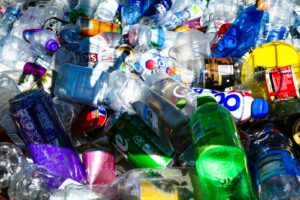Global initiative launched to tackle river microplastic pollution
A global initiative will look to establish new ways of analysing and understanding the microplastics that pollute our rivers.
The 100 Plastic Rivers Project, led by the University of Birmingham, will include contributions from scientists in more than 60 locations worldwide to sample water and sediment in rivers.
The aim is to better understand how plastics are transported and transformed in rivers and how they accumulate in river sediments, where they create a long-lasting pollution legacy.
The programme will analyse both primary microplastics, such as micro-beads used in cosmetics, and secondary microplastics, from larger plastic items that have broken down in the environment or fibres from clothing.
A key part of the project is to establish a standard method for the sampling and analysis of microplastics which can be used to provide an assessment of the plastic pollution of our river networks.
The Birmingham team have produced a toolkit which includes instructions for sampling water and river sediments at locations where stream flow is already measured in order to develop new methods of identifying and analysing microplastics.
Professor Stefan Krause, of the School of Geography, Earth and Environmental Sciences at the University of Birmingham, said: ‘Even if we all stopped using plastic right now, there would still be decades, if not centuries-worth of plastics being washed down rivers and into our seas.
‘We’re getting more and more aware of the problems this is causing in our oceans, but we are now only starting to look at where these plastics are coming from, and how they’re accumulating in our river systems.
‘We need to understand this before we can really begin to understand the scale of the risk that we’re facing.’
In a recently completed pilot study, the University of Birmingham team collaborated with the Clean Seas Odyssey citizen science project to test parts of the developed methodology based on sampling water and sediments from river estuaries around the UK and France Channel coast, which revealed a much wider variety of plastic types than had been anticipated.
A separate study released last month from the University of Bangor and Friends of the Earth found microplastic pollution in some of Britain’s most iconic and remote rivers and lakes.
The study looked at ten sites, including lakes in the Lake District, waterways in the Loch Lomond and Trossachs National Park, a wetland and Welsh reservoir, and found microplastics in every one.
Researchers used a fluorescence lighting system and were able to identify and count microplastic pollutants per litre of water, such as plastic fragments, fibres and film.















